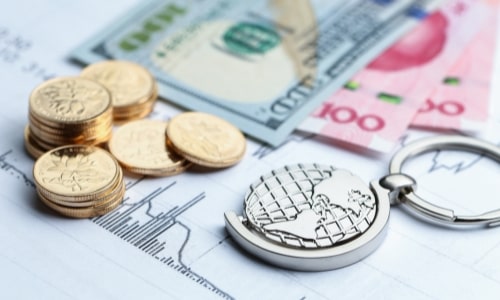How Do Millionaires Insure Their Money?
Table of Content
|
Did You Know? |
|---|
|
Be it for curiosity or financial learning, ‘how millionaires secure their money’ is a rather popular question. This question can certainly reveal a great deal, as you can understand how millionaires insure their money and imbibe their financial habits for your own benefit as well.
Although most HNWIs invest their money into mutual funds, stocks, retirement accounts, real estate, and other such assets, there’s more to it in terms of habits, financial approach, and more. This article will throw light on how millionaires keep their money, what their financial habits are, and more.
They Don’t Overspend
Most millionaires have high disposable income which cannot be easily overspent. As unexpected as it sounds, millionaires are usually frugal. For instance, they usually purchase a certified pre-owned automobile rather than a brand-new car.
This does not imply that they do not enjoy the extravagant lifestyle - they spend wisely rather than spending without a thought.
They Use Reward-Loaded Credit Cards
A majority of millionaires opt to use credit cards to avail of rewards on the Dirhams spent. They usually end up putting most of their daily expenses on credit cards that offer points or miles as rewards, which they use for leisure activities like travelling. Moreover, they pay off their credit card bills in full every month to not get charged additional interest or fees.
They Invest Their Money
The following are some financial assets where millionaires save their money -
1. Cash and Cash Equivalents
Most millionaires end up saving their money and expect their families to do the same. They usually save their money in the form of cash or high-liquid cash equivalents. Millionaires, on average, have 25% of their funds in cash. This is so because in case there is a market downfall, they would have at least some money as insurance for their investment portfolio.
Some common cash equivalents that millionaires invest in are -
- Money market mutual funds
- Certificates of deposit
- Treasury bills
- Commercial papers
Most of the millionaires invest their funds in treasury bills for their high liquidity and reinvesting features.
Another important fact you should know is that millionaires bank differently from the common people. Millionaires usually have zero-balance accounts with private banks, with the accounts being managed by private bankers. While they invest in cash and cash equivalents, they sign their cheques on these zero-balance accounts.
Some millionaires also have safe deposits equipped with cash in different currency denominations.
2. Real Estate
Investing money in real estate has always been a popular type of investment venture among millionaires. This trend of investing in real estate usually begins by purchasing the main home before moving on to other personal properties, usually to lease or for hire. They then start purchasing commercial properties like office spaces, stadiums, hotels, bridges, and more.
Millionaires usually have massive real estate portfolios. Once they have made their mark as buyers, the real estate agents also start providing them with promising deals to make it easy for them to get financing options. Real estate is a preferred investment option as it offers stability and provides passive income via rental income.
Note: Mutual funds and equity are the most sought-after financial assets for some millionaires. Once their funds are stable, they purchase estates to diversify their investment portfolio and multiply their wealth via real estate investments.
3. Commodities
Some millionaires also invest their money in commodities like minerals, gold, silver, and so forth. This option is usually preferred as the impact of market fluctuations is less with them compared to regular equities, with most commodities having stable prices. Note that such investments are still based on the goals they want to achieve.
With that said, such investments require storage and are complicated to some extent. For instance, if an investor purchases gold bullion, they would need a safe to store the bullion, which can be a hassle to some extent. Nevertheless, investing in commodities enables them to secure their assets against inflation. Even if the prices rise, their funds remain safe.
4. Cryptocurrency
Cryptocurrencies are digital assets that are not regulated by a central bank or a governmental organisation. Cryptocurrency often helps millionaires accrue more wealth as they are the ones who practically decide which crypto is valuable. One of the many reasons why investors end up investing in crypto is that they believe that this investment option can eventually change the financial market.
There are about 100,000 cryptocurrency millionaires in the world. However, it’s worth noting that crypto is not a major investment asset - it takes only about 10% of the millionaires’ investment portfolio.
5. Stock and Stock Funds
Millionaires often diversify their investment portfolio by investing in stocks and funds, which enables them to grow their wealth. Millionaires usually invest in index funds, stocks, and mutual funds and end up investing at least 20% of their funds in stocks. This allows them to earn passive income from the equity securities.
A majority of millionaires invest in index funds as they can earn decent returns as passive income with a lower risk than equities. These funds also have low management fees and excellent diversification. Some millionaires, besides investing in capital-appreciation stocks, also invest in dividend-paying stocks to earn a passive income.
6. Private Equity and Hedge Funds
Hedge funds and private equity are exclusively reserved for millionaires to invest in. There are two types of equity funds - Private Equity and Public Equity. Under private equity, the funds come by investing in larger organisations like universities. However, in the case of public equity, the funds are generated by investing in the stock market.
Hedge funds are quite different from the above-mentioned ones. The investors here receive enormous profits thanks to the usage of funds collected and specific tactics. Although equity and hedge funds seem like good possibilities, they are not ideal for beginners.
Note - Even if you don't have a lot of money, you may still explore some of the investment opportunities that billionaires and millionaires use to keep their money invested. However, only the world’s richest people usually have exclusive access to hedge and equity funds.
7. Alternative Investments
Some alternative investments that millionaires and billionaires keep their wealth in can also be quite successful. Investors can, for instance, invest in intellectual property rights, rare and expensive musical instruments, NFTs, fine art, wine, and more. When it comes to investment alternatives, millionaires need to balance their preferences with those that would be advantageous and practical for their portfolio.
For instance, investors frequently select NFTs today because they think that they are the most lucrative options. However, that does not imply that there are no other ways to safeguard their funds. Some people simply prefer collecting wine or antiquities over other options that they are passionate about.
8. Businesses
Millionaires who have achieved success do not just invest in new firms without giving them enough consideration. Instead, they frequently have a team of individuals who assess the options before making a decision. As a result, investing in businesses is not always as simple as it may seem. Although this choice carries risks, it can also bring massive returns.
Millionaires take several risks to accumulate their money, after which they keep their money and buy potentially lucrative companies. Investing in technology-related enterprises is a frequent approach for millionaires, considering how they can produce substantial returns on investment.
They Maintain an Emergency Fund
Most millionaires have emergency savings that can prove helpful in dire circumstances. When deciding where to invest their money to build an emergency corpus, they frequently employ a tiered plan which has the following levels -
- Tier One - In a fundamental money market or high-yield savings account
- Tier Two - In a portfolio of ETFs that invests in assets with short maturities. Even while their value may fluctuate, they normally offer a larger income than savings accounts, and their short-term maturity reduces any possible [value per share] fluctuations.
- Tier Three - Some billionaires put their money in "buffer" assets, which provide some level of downside insurance coverage while allowing for potentially higher yields linked to market indices like the S&P 500 or the Nasdaq.
They Strategise How to Carry Debts
Millionaires tend to avoid taking on debt for items like automobiles or yachts in order to avoid having to pay years of interest on assets that depreciate. They might, however, have a loan on their principal home. Most millionaires speed up their mortgage repayments to pay it off in advance and lower the total amount of interest they must pay.
Key Takeaways
- Most millionaires have large amounts of disposable money that are difficult to spend beyond their means. Furthermore, instead of making careless purchases, they make wise ones.
- Most millionaires use credit cards to earn rewards for their spending. They typically end up using credit cards that provide miles or points as rewards to pay for the majority of their daily spending. These benefits are then used towards leisure pursuits like travel.
- They also make investments in financial assets such as cash and cash equivalents, stocks, mutual funds, commodities, real estate, cryptocurrency, private equity, and hedge funds.
- On average, millionaires hold 25% of their assets in cash so that they have money set aside as investment portfolio insurance in the event of a market fluctuation. They frequently invest in money market mutual funds, certificates of deposits, Treasury bills, and commercial papers as cash equivalents.
- One of the most common types of investment ventures among millionaires has always been spending money on real estate. This investment starts with the acquisition of a primary residence, followed by the acquisition of additional (mostly rental) personal properties and commercial real estate.
- Some millionaires also put money into commodities like gold, silver, and minerals to be spared from dealing with market volatility.
- Most millionaires have emergency funds that secure them in difficult situations. They typically use a tiered approach when choosing where to put their money to create an emergency corpus.
- In order to avoid having to pay years of interest on assets that quickly depreciate in value, millionaires typically steer clear of taking on debt on purchases like cars or boats. However, they can have a loan on their primary residence.
Policybazaar UAE – Helping you navigate the wilderness of the insurance world!
More From Investment
- Recents Articles
- Popular Articles





.jpg)
.jpg)





.jpg)

.jpg)

.jpg)

.jpg)

.jpg)
.jpg)

.jpg)
















